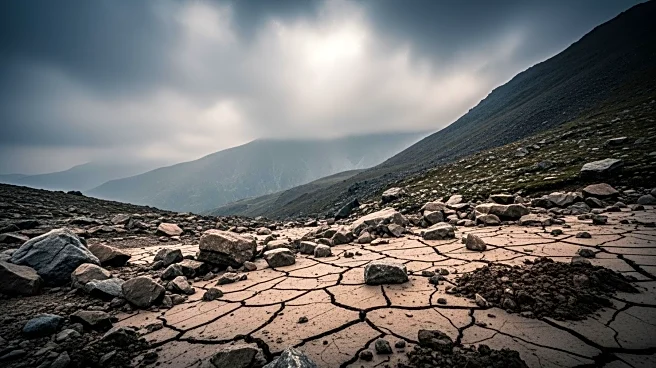What's Happening?
A landslide in Vietnam's central highlands buried a passenger bus, resulting in six fatalities and 19 injuries. The incident occurred on the Khanh Le pass, a scenic yet hazardous route prone to landslides
during the rainy season. The bus, carrying 32 passengers from Ho Chi Minh City to Nha Trang, was trapped under debris, complicating rescue efforts due to additional landslides blocking access. Heavy rains, exacerbated by Typhoon Kalmaegi, continue to affect the region, with forecasts predicting significant rainfall through Wednesday.
Why It's Important?
Vietnam is one of the most flood-prone countries globally, with nearly half of its population residing in high-risk areas. The increasing frequency and intensity of storms and rainfall, attributed to climate change, pose significant challenges to infrastructure and safety. This event underscores the urgent need for improved disaster preparedness and infrastructure resilience in Southeast Asia, as such natural disasters can severely impact local economies and communities.
What's Next?
Rescue operations are ongoing, with efforts focused on recovering bodies and providing medical care to the injured. Authorities may need to reassess and enhance safety measures on vulnerable routes like the Khanh Le pass. The government might also consider long-term strategies to mitigate the impact of climate change, including infrastructure upgrades and community education on disaster preparedness.
Beyond the Headlines
The landslide highlights broader environmental concerns, including the impact of climate change on Southeast Asia. As storms become more destructive, countries in the region may face increased pressure to adopt sustainable practices and invest in climate resilience. This incident could catalyze policy changes and international cooperation to address these challenges.









